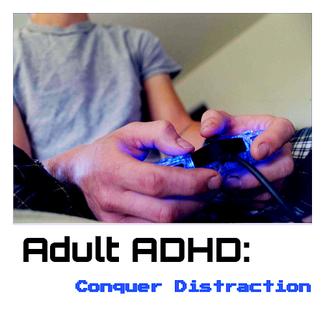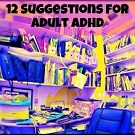How to establish habits, systems, and routinesYou've probably heard that it takes around 21 days to form a habit. Well, sort of. It actually takes around 21 days to break an old habit or association, and blogger James Clear discusses the science behind habits and found it takes around 60 days to make a new habit automatic. I would add that it probably takes about 90 days before your new habit becomes so natural you do it without thinking about it. When picking a habit make sure that you're being reasonable. Resolving to "keep the whole house clean every day", might be unrealistic. You might be able to do it for a day, but you'll most likely find it very difficult, if not impossible to maintain. For me a habit is easier to start if it doesn't seem like "work". For example, cleaning out my car might seem exhausting, regardless of how long it would actually take to finish. So, I never get started. But, if I grab two or three things out of the car every time I get out, such as trash or items that don't belong, the car will probably be significantly cleaner in just a few days... WITHOUT doing any "WORK"! Other simple habits I've put in place to make life simpler:
Start with small, reasonable goalsDaily Habits are Easier to EstablishDoing something every day is much easier than doing it every third day or just "when it needs to be done", as in the example of the dishwasher. If you only run the dishwasher "when it needs it", it can be difficult to maintain a routine. But if it's just what you do after finishing dinner, it will be ready to empty, making that habit easier to establish as well. But why is a daily habit easier to establish? Much of our Behavior has CuesHave you ever noticed that it is easier to establish a habit in the morning than in the evening? It might be because there are more cues competing for your attention (try the TV show I want to watch at 9:00, checking Facebook, Pinterest, or Twitter, before bed, text messages going off, etc., etc.) In the morning, however, you do not have a day's worth of thoughts and activities vying for your attention. Need more proof? Why do we eat? Because it's lunchtime? Because we're hungry? Why do we get hungry around noon? Because our bodies have learned that that is when we eat. We have cued our hunger signals around that time. Find the Right CuesFor people without ADHD, this isn't such an issue. They "just remember" they have an appointment... while those of us with ADHD... well, we "just forget". A reminder on your phone might be enough for some. Unless, you're [insert activity that you find more interesting] than [insert activity you're supposed to be doing]. Video games, Facebook, YouTube are all big culprits here. In other words, video games usually cue us to continue playing, not to stop and do the dishes. So, how do you cue yourself to stop Interesting Activity A in favor of Boring Activity B. Both the Cues and the Habit Need to Be InterestingMost of our parents took care of this for us. There simply was no video game play until, say, our homework was done. Unfortunately, this necessary external control, may have left you lacking the ability to impose that kind of self-control. If you are able to "reward" yourself this way, fantastic... You may not have ADHD! Many of us have a hard time with this. Here's a sneaky way to get around this problem (though it won't work in every case): see if you can do something interesting AT THE SAME TIME. When I first discovered audio books, I realized I could use them to motivate myself to walk while I was pregnant. I only listened to my book when I was walking. I wanted to walk longer and more often, just so I could read my book! (I have since used this method to get everything from dishes to folding laundry done in an efficient manner). If you can't do the interesting activity at the same time, try finding a way to cut off the behavior automatically. For example, we use surge protectors in our house that have timers, in the past when internet usage or binge watching on Netflix was keeping everyone from getting to bed on time, we set the internet and TV to simply shut off at a certain time in the evening. It was really easy to go to bed when the TV was just off. Make it a ChoiceThere's one important caveat here: if you find yourself trying to get around the restrictions (e.g. resetting the timers so the TV and internet will magically reappear), it defeats the purpose. When your parents were the one's making the rules, you might have had a Don't-Tell-Me-What-To-Do reaction. I promise it'll be much easier to follow through, if you decide to see this, not as rule setting, but as a choice. It's feels different when you think to yourself, "This is something I want to do, because [fill in a good reason]" instead of, "This is something I have to do, because [I should, must, ought to, etc.]. What are you going to start first?What small steps are you going to take towards that thing you've always really wanted to do? Let me know in the comments, how it's going!
|
Nikki Schwartz,
|






 RSS Feed
RSS Feed
